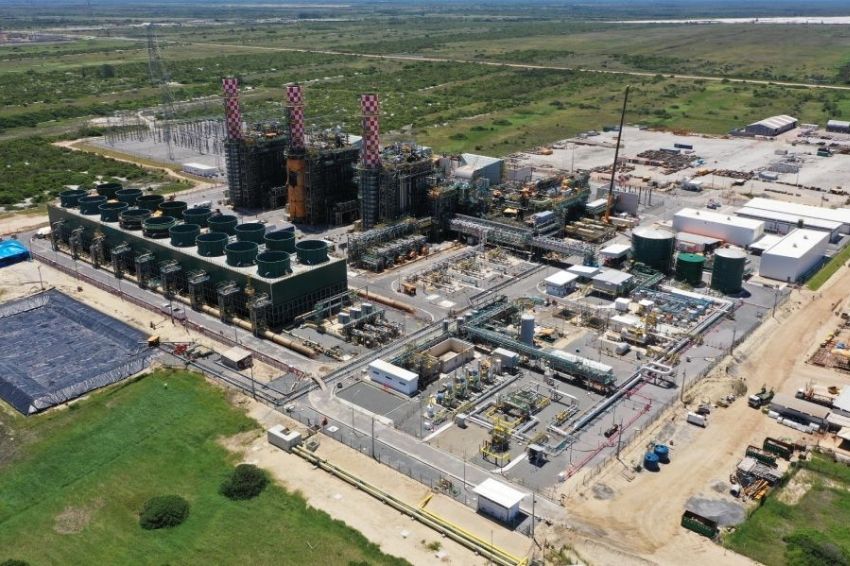Amid the biggest water crisis in the last 91 years, Brazil began the 4th quarter of 2021 with just over 3,100 thermoelectric plants in operation, according to data from ANEEL (National Electric Energy Agency). These are more expensive, polluting plants and their operating costs are passed on to the end consumer.
Data from the ONS (National Electric System Operator) also shows that the country has never generated as much electricity in thermoelectric plants as in August this year. According to the latest bulletin, 14,143 GWh were produced in the period – an increase of 12% compared to the height of the last water crisis, in 2015.
Only in the last week, two new thermoelectric plants were inaugurated in the cities of Rio de Janeiro (RJ) and Boa Vista (RR). In the city of Rio, the UTE GNA I – the second largest thermal plant in the country, with 1,338 MW of installed capacity and which had investments of R$ 5 billion for its construction.
In Roraima, the Jaguatirica II Thermoelectric Plant was inaugurated and which, according to the Federal Government, will add 141 MW to the state electricity system. The planned investments in the construction of the project were in the order of R$ 1.9 billion.
According to Gustavo Tegon, co-founder of Esfera Solar, Brazil should invest less in polluting plants and focus more efforts on incentives for the generation of renewable energy, especially solar. “Talking about energy generation that is not renewable these days is a step backwards. Brazil, with all the possibilities it has, be it solar or wind, should not be worrying about containing a water crisis by activating thermoelectric plants”, he said.
According to him, countries around the world are already moving towards the energy transition. “Countries like China, for example, are refusing to import coal to meet their high energy demand and are increasingly forcing their own governments to make a call for renewables,” he commented.
Charges to the Government
At the end of September, more than one hundred large companies have signed an open letter demanding greater participation from the Federal Government in issues related to the environment. The document calls for a greater role for the country against deforestation and the emission of greenhouse gases, as well as investments in renewable energy.
Concern about the Union's actions was, for example, this Monday (04), one of the main topics of the “Shell Talks: Driving Progress” – an event organized by Shell with the aim of debating the future of the energy sector.
André Araujo, president of the company, said that Brazil urgently needs to adopt sustainable measures and present news to the world at the UN Climate Conference (United Nations), which will take place in Glasgow, United Kingdom, in November this year.
“Brazil needs to have a leadership role (with regard to the energy transition and carbon decarbonization) and not a reactive role. The country has many opportunities and has to lead this dialogue, because, in Glasgow, what we will have is, probably, the closing of the Paris Agreement rule book”, he said.
The executive's speech took place during one of the six virtual panels that were organized by the oil company and whose main objective was to debate energy transition solutions and sectors that are difficult to decarbonize.
The panel also included the participation of important names in the market, such as the presidents of SAP Brasil, Adriana Aroulho, and Suzano, Walter Schalka, as well as the executive vice-president of Institutional Relations and Communication at Vale, Luiz Eduardo Osorio. Everyone defended the idea that the Federal Government needs to invest in energy transition policies through renewable energy, such as solar sources.
More polluting future
With the construction of new plants, fossil fuel-based thermoelectric plants are expected to increase their participation in the Brazilian electricity matrix from 17.7% to 23.1% in the next three years. Meanwhile, the share of hydroelectric plants is expected to fall from 72.5% to 64.4%, even with the construction of new plants.
As a result, the Brazilian matrix, often praised for exploring renewable sources, must increase its dependence on non-renewable and more polluting resources, such as oil and gas.
The data is contained in a study released at the beginning of the year by IPEA (Institute for Applied Economic Research). With the worsening of the water crisis throughout the year and the more intense activation of thermal plants by the Federal Government to guarantee energy supply, the growth of thermoelectric sources in the energy matrix may increase.
















